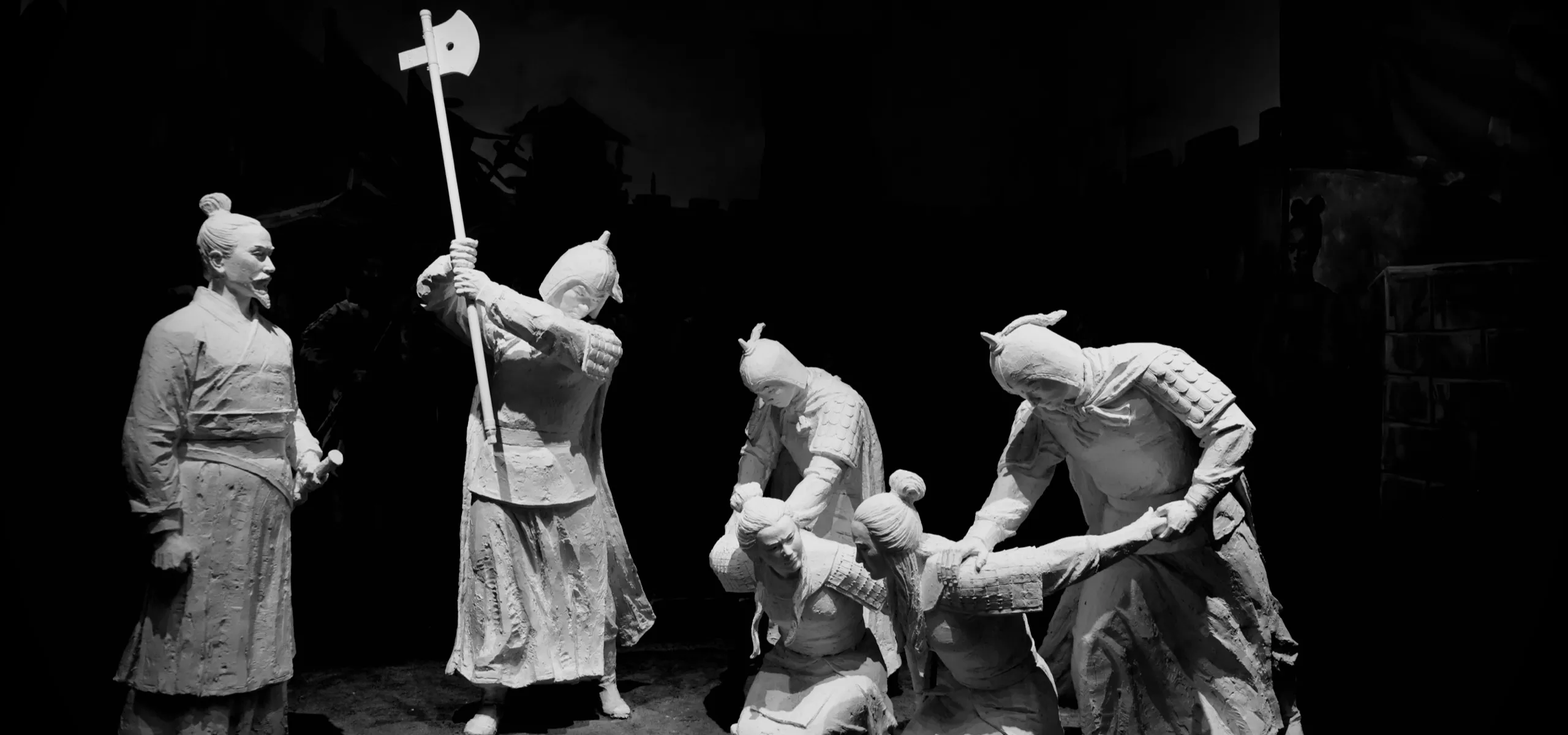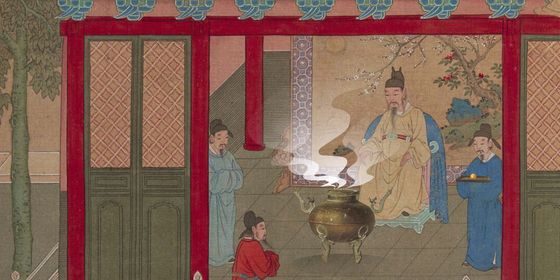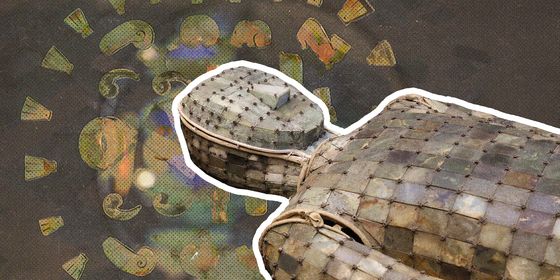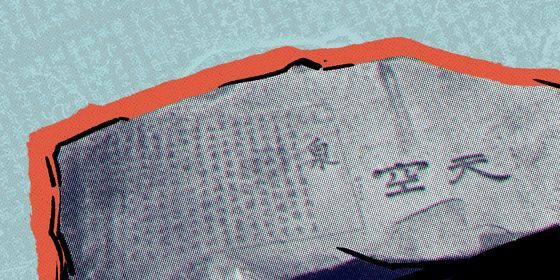From turning the tides of battle to preventing conflict altogether, spies were an integral part of warfare in ancient China—sometimes unwittingly
What was the key to winning a great battle in ancient China? According to author Zhu Fengjia (朱逢甲), who wrote the Book of Spies (《间书》) in the Qing dynasty (1616 – 1911), it was espionage: “In ancient times, when a great military general confronted another of the same level, the one who used spies would win.”
Zhu based his assessment on a long list of successful spying tactics that swayed battles and even the fate of the nation in ancient China. For example, spies turned the tide when the Qin state fought the Zhao state at the Battle of Changping in 260 BCE. According to The Records of the Grand Historian (《史记》) by Sima Qian (司马迁), the states entered a two-year stalemate with Zhao defending a position along the Dan River south of Changping Pass (in present-day Shanxi province), led by brilliant military general Lian Po (廉颇).
Fan Ju (范雎), prime minister of Qin, sent spies into the Qin army to spread rumors among the ranks that Zhao was confident of besting Lian and his army, since they thought he was a poor general––but feared the younger general, Zhao Kuo (赵括). The King of Zhao took the bait, sacked Lian, and put Zhao Kuo in charge despite the young man’s lack of military experience. Zhao abandoned Lian’s defensive tactics and attacked with his main force across the river, only to be routed by the Qin. They quickly surrendered, and 400,000 of their soldiers were executed.
The very earliest record of espionage in China can be found in The Commentary of Zuo (《左传》), a narrative history written from the 8th to 5th centuries BCE. It records that deposed emperor Shao Kang of the Xia dynasty (c. 2070 – 1600 BCE) sent spies to investigate the son of his usurper, Han Zhuo (寒浞). Though no further details are supplied, it suggests espionage existed in China at least 3,000 years ago.
In The Art of War, from as early as the 5th century BCE, Sun Tzu devoted his final chapter to “Using Spies,” and stressed that “None in the whole army are more intimate relations to be maintained than with spies. None should be more liberally rewarded. In no other business should greater secrecy be preserved.”
During the Northern and Southern dynasties (420 – 589), Wei Xiaokuan (韦孝宽) from the Western Wei state used spies and a cunning letter to defeat his Eastern Wei enemy, General Niu Daoheng (牛道恒). Niu had come close to attacking Wei in the city of Yiyang (in present-day Hunan province), and Wei wanted to get rid of him. He had spies gather samples of Niu’s handwriting and then forged a letter saying Niu planned to defect to Western Wei. He even had the letter weathered, and finished as if in a hurry by singeing it slightly under a lamp. Spies delivered the letter to Niu’s superior Duan Chen (段琛), who then began to suspect Niu and began to undermine his command of the army. With Eastern Wei forces destabilized and lacking leadership from either Niu or Duan, Wei Xiaokuan launched an attack, won the battle, and captured them both.
Sometime spies could prevent conflict. During the Warring States period (475 BCE – 221 BCE), for example, Lord Xinling of the Wei state stopped his king from potentially sending forces to confront the Zhao state as they approached Wei’s border––possibly developing into a full-blown war. The king heard the news of the approaching Zhao army while playing chess with Lord Xinling, who quickly told him not to worry. His spies were nested within the Zhao leadership and reported the Zhao king was out hunting, certainly not invading.
Sometimes, plots were so elaborate that the spies themselves didn’t know the role they played. In fact, Sun Tzu had a special name for these types of spies, who were intentionally given false information to pass onto the enemy: “dead spies (死间).” The name reflects the fate they often suffered after being captured by the enemy.
In the Song dynasty (960 – 1279), an unfortunate monk named Fasong (法崧) proved useful as one of these dead spies for General Chong Shiheng (种世衡), as recorded in the Dream Pool Essays (《梦溪笔谈》), a Song encyclopedia. In the reign of Emperor Renzong, brothers Yeli Wangrong (野利旺荣) and Yeli Yuqi (野利遇乞) were the most powerful generals of the Western Xia, an empire bordering Song territory to the northwest. Chong wanted to get rid of them.
Chong had a good relationship with Fasong, but one day, visiting the monk, he accused him of colluding with the Western Xia and had him tortured. Fasong insisted he was innocent and Chong eventually released him, confessing the torture was a means of testing his loyalty. He then offered Fasong a prestigious mission: spy on the Western Xia. Fasong accepted, and Chong gave him several pieces of Song military intelligence that could be used in a meeting with Yeli Yuqi, to begin gathering information. Just before Fasong set out for enemy territory, Chong gifted him a new coat.
When Fasong arrived in the Western Xia, he did as Chong had told him, trying to set up a meeting with Yeli Yuqi. But this soon aroused suspicion and he was arrested and searched. Inside the pocket of his newly gifted coat, they found a letter from Chong addressed to Yeli Yuqi that suggested they had a close relationship—a serious concern for Western Xia leadership. Fasong was duly tortured to get the truth out of him, but since he had no idea about the letter, he had nothing to tell. The Western Xia court eventually came to believe that the Yeli brothers were already collaborating with Chong, and had them both executed.
Chong got what he had plotted all along, but his “dead spy” also had a lucky escape. For reasons unknown, he was eventually released by the Western Xia and made it back to Song territory. Whether he still wore his coat, or indeed ever discovered the plot he had been an unwitting part of, remains a mystery.












